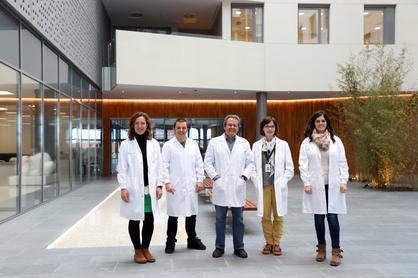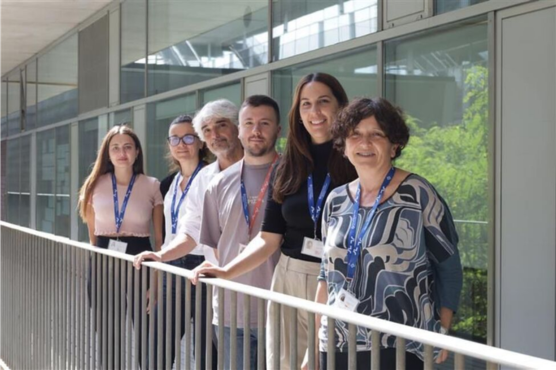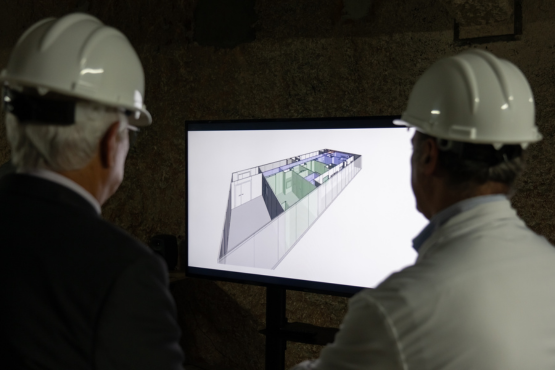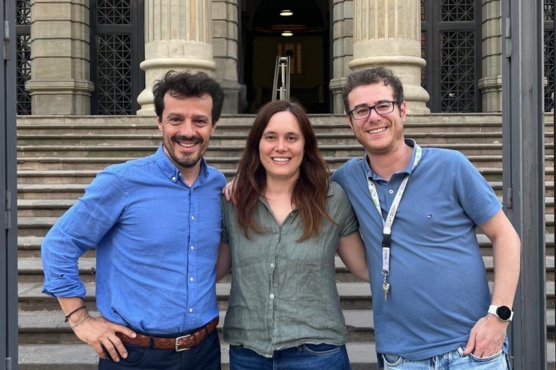Acute lymphoblastic leukaemia (also known as acute lymphocytic leukaemia or ALL) is a type of cancer of the blood in which, for unknown reasons, excessive amounts of immature lymphocytes (lymphoblasts) are produced. The cancerous cells multiply rapidly and displace the normal cells of the bone marrow, the soft tissue inside some bones where blood cells are formed.
Although ALL often mainly affects children, it is not uncommon to observe it in adolescents and young adults. In adults, this kind of leukaemia prevails in young males (average age between 25 and 30 years old). Only 10-15% of patients are over 50 years old. In Spain, the annual incidence of ALL in adults is 30 new cases per million inhabitants per year.
Dr Ribera’s group has led adult ALL treatment throughout Spain for 20 years.
Recently they have published two very important works on aspects of this disease:
-TRANSPLANT: On one hand, a study published in Blood, one of the most important scientific journals on haematology in the world. Entitled Do all adults with acute lymphoblastic leukaemia have to be transplanted? The answer is: no.
In this work, they have been able to identify which patients will need a transplant of haematopoietic stem cells for their recovery and which ones do not. To do this, they have studied 348 adult patients with acute lymphoblastic leukaemia and have seen that 218 will not need to have a transplant (and will continue with chemotherapy) and 106 who will.
The assessment is based on the detection of the minimal residual disease, which is what the patient has “hidden” in the body and the researchers cannot detect with a microscope, but they can with other systems. If the quantity of these cells is small, a transplant would not be necessary, but if the quantity is high, it will be.
In this study they have worked together with Dr Alberto Orfao, member of the Scientific Committee of the Josep Carreras Institute and Director of the General Cytometry Service of the University of Salamanca and expert in the detection of residual disease. Dr Orfao’s team has very sensitive technology, called next generation flow cytometry, which enables these cells to be detected to quantify them very precisely, which has allowed for improvement in clinical decisions depending on the figures obtained with this cutting-edge technology.
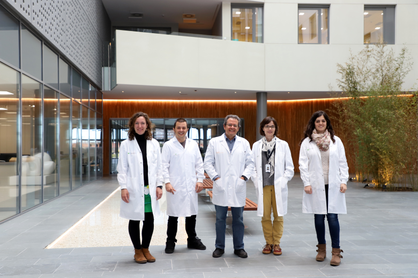
Acute lymphoblastic leukaemia (ALL) group of the Josep Carreras Leukaemia Research Institute, led by Dr Josep Maria Ribera.
-RELAPSES IN T-CELL ACUTE LYMPHOBLASTIC LEUKAEMIA IN ADULTS: On the other hand, Dr Eulalia Genescà and Dr Josep Maria Ribera have worked together on the study, published in the Genome Biology journal, with the laboratory of Núria López-Bigas at IRB Barcelona and with Anna Bigas’ groups at the Hospital del Mar Medical Research Institute.
It is a genetic study of a type of acute lymphoblastic leukaemia, the T-cell type, which despite initially responding to treatment positively, has frequent relapses and a bad prognosis.
The group has studied how these patients were genetically upon diagnosis and at the time of relapse. The team has discovered that the cells responsible for resistance to treatment of T-ALL leukaemia in adults are already present in the tumours before the first diagnosis.
To carry out this work, they have sequenced the genome of samples from 19 patients at the time of diagnosis as well as during treatment and upon relapse, and they have compared the information obtained with a database of 238 patients (adults and children) affected by similar tumours. Through the comparison of the primary leukaemias of the adults and those of the paediatric patients, they could observe that the mutational processes are similar, although the specific genetic alterations responsible for the relapse are different in each individual case. For this reason, an algorithm is being developed to classify these relapses, as not all of them are the same. Sometimes the patient can relapse from the same disease they initially had, and other times it is seen that upon relapse the leukaemia has changed.
This has permitted in-depth study of the matter of relapses and their complexity. Almost every relapse is different, which has major implications for designing the treatment. For this reason, the team will continue to be UNSTOPPABLE to continue getting to know them in more detail.



